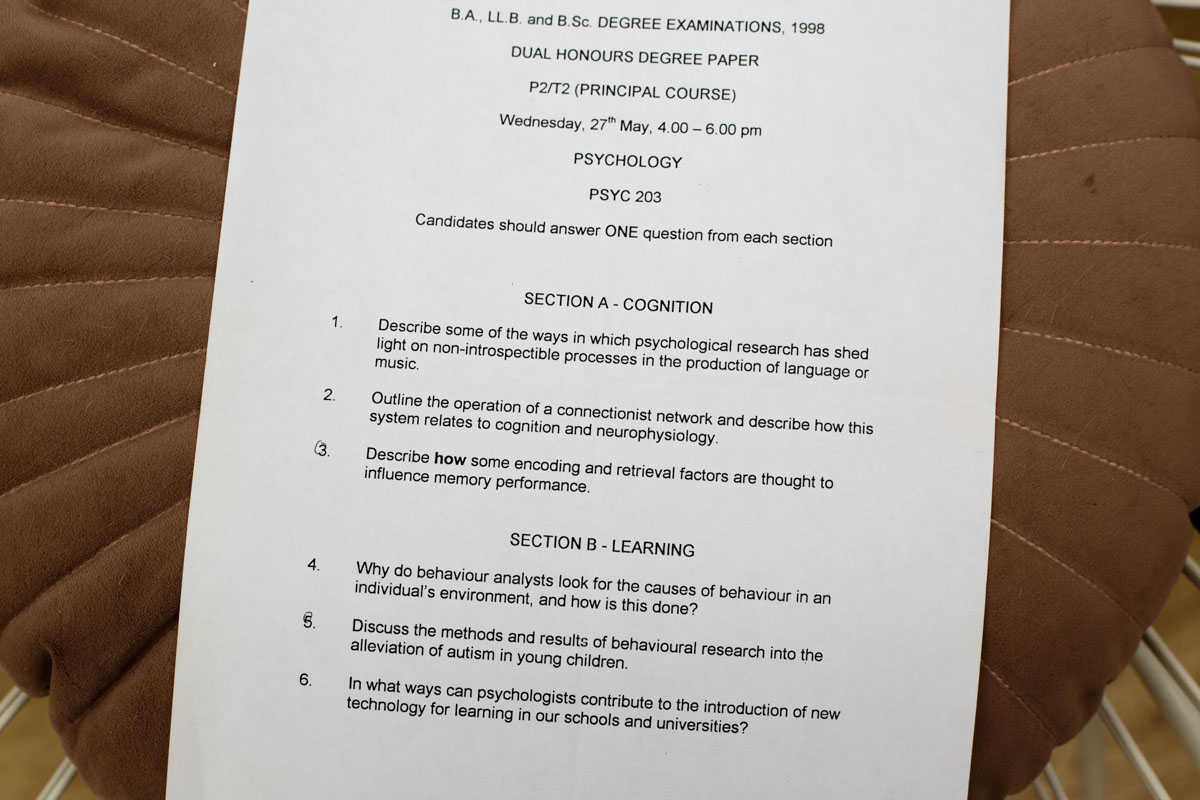How to Revise Effectively for Exams
Written exams require students to demonstrate an understanding of the course materials they have studied. And this typically involves recalling and applying that knowledge in essays. Essays are commonly used in academia to evaluate a student’s mastery of course materials, critical thinking skills, and ability to communicate effectively in writing. However, revising for written exams requires a different approach than revising for MCQ exams. It can also be daunting, but with help, revision can be more manageable and effective. Here’s a list of tips (i.e. success criteria) to help students revise effectively for written exams and improve their performance and confidence.

Tips to Help Students Revise Effectively for Exams
Revising for written exams can be challenging. Follow the tips below to enhance your confidence and improve your exam performance.
1. Review the Syllabus
First, make sure you understand the content and format of the exam. Review the course outline to identify key topics and concepts covered.
2. Create a Study Schedule
Before you start revising, create a schedule that outlines how much time you have until your exams. And the topics you need to study. This revision plan will help you stay on track and cover all the necessary materials.
Next, gather all the study materials you need to revise, including textbooks, lecture notes, handouts, and other resources.
3. Use Active Study Techniques to Revise Effectively for Written Exams
When revising for exams, it is ineffective to read your notes over again, copy them out or highlight bits of text in papers or books. You should actively engage with the materials you want to recall during exams rather than learning information passively.
Active study techniques make knowledge “sticky!” They help you engage with the materials more deeply. And are more effective for recalling and applying knowledge in exams.
So, instead of simply reading through your notes, use flashcards, practice questions, or teach the material to someone else. Think, discuss, understand, and connect the revised materials with your existing ideas and knowledge. Ask yourself: “Is it a theory?” “Is it supporting evidence?” “Do I agree with it?“
Moreover, use mnemonics, acronyms, or other memory aids to help you remember important information.
4. Test Yourself!
Testing yourself on the course materials is a great way to identify gaps in your knowledge and track your progress. Use past papers or sample questions to test yourself regularly.
Retrieving information during learning forces you to be more active than you would otherwise be if you merely read your revision notes without quizzing or testing yourself.
And the “testing effect” provides evidence that supports active learning. It shows how memory recall is better when you quiz or test yourself while studying.
5. Practice Writing to Effectively Revise for Written Exams
The more you practice writing essays under timed conditions, the better you will get at it. Try to simulate exam conditions and practice writing papers on different topics to become familiar with the structure of the exam.
6. Prioritize Difficult Topics
Focus your revision efforts on the topics that you find the most challenging. This strategy will help you make the most progress in the areas you need the most improvement.
7. Take Regular Breaks
It’s essential to take regular breaks to avoid burnout and maintain focus and concentration. Aim to take a short break every 45-60 minutes of studying.
8. Get Enough Sleep
Lastly, ensure you get enough sleep (e.g., 7-8 hours) in the days leading up to the exam. Lack of sleep can impair cognitive function and memory recall because it is essential for memory consolidation!
Tips to Help You Sleep
Stop revising 90 minutes before bed.
Relax with friends, listen to music, read a book, watch TV, etc.
If your head is still buzzing with thoughts in the middle of the night, have a notebook by the side of the bed and write it down.
If you wake early—go for a walk. It will clear your mind before the exam.
Summary
Revising for written exams typically involves reviewing course material and practising writing essays to sample questions. Developing strong writing skills such as organization, clarity, and conciseness also helps.
Remember, quiz yourself during exam revision—this will make information sticky so you can recall and apply knowledge when you write essays in exams.
Everyone has unique study habits. What works best for one person may not work for another. Experiment with different revision techniques and find what works best for you.
Good luck revising for your exams!
Want to get the most out of your degree? Then check out my other pedagogy articles!
Like this study guide? Spread the word.

























